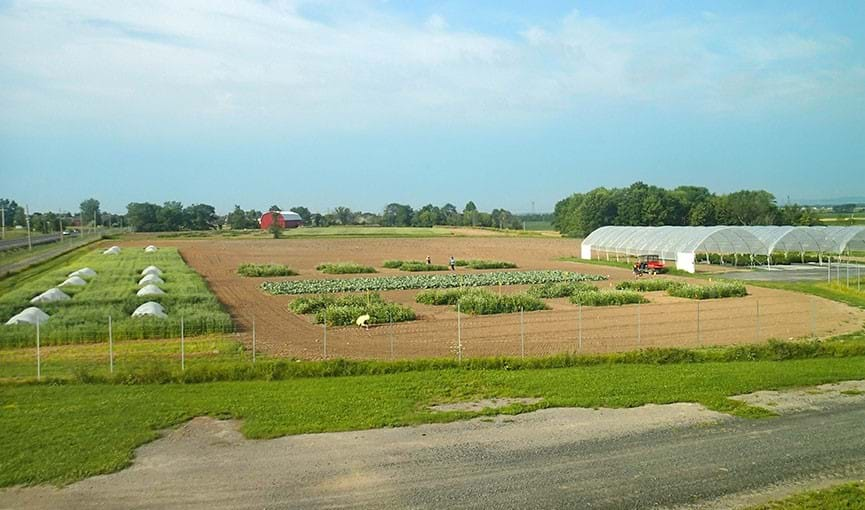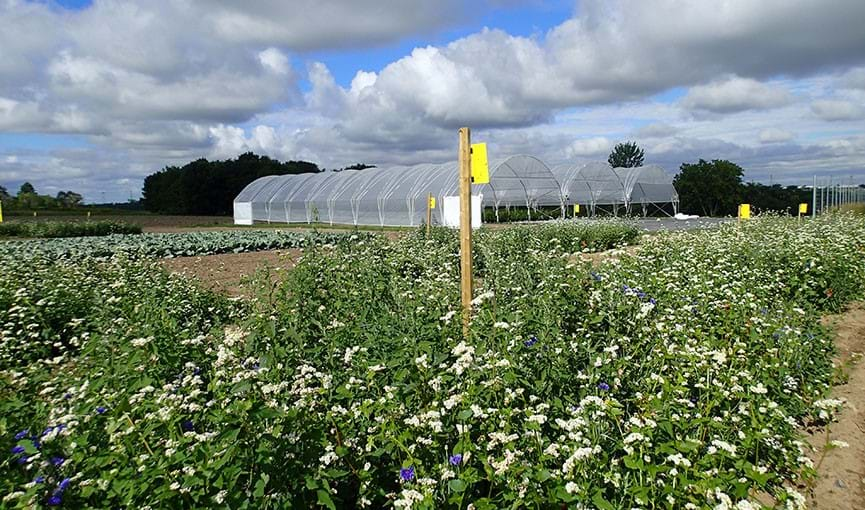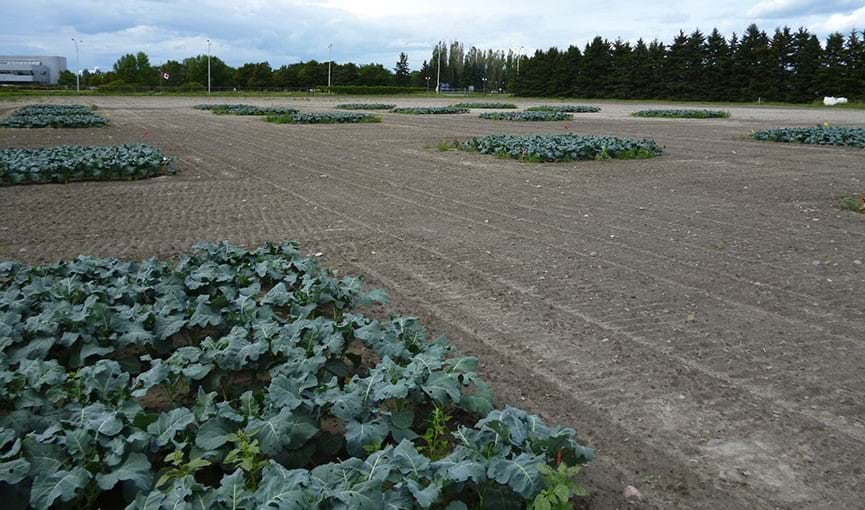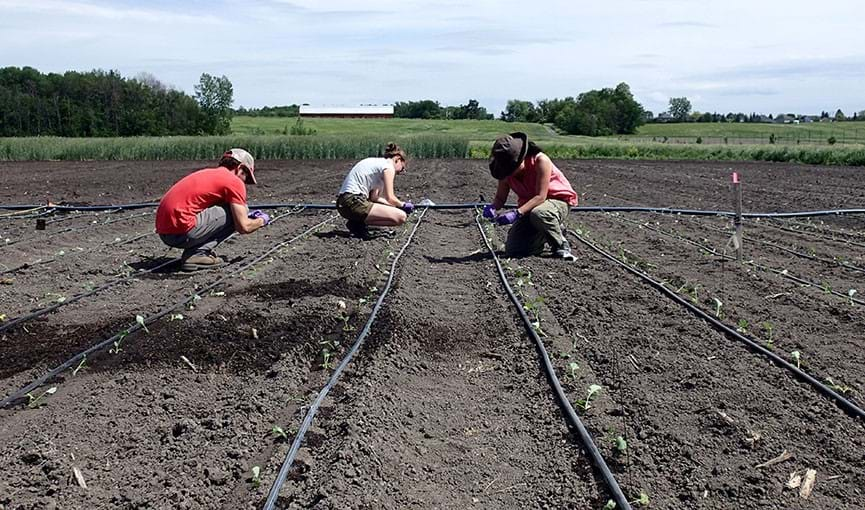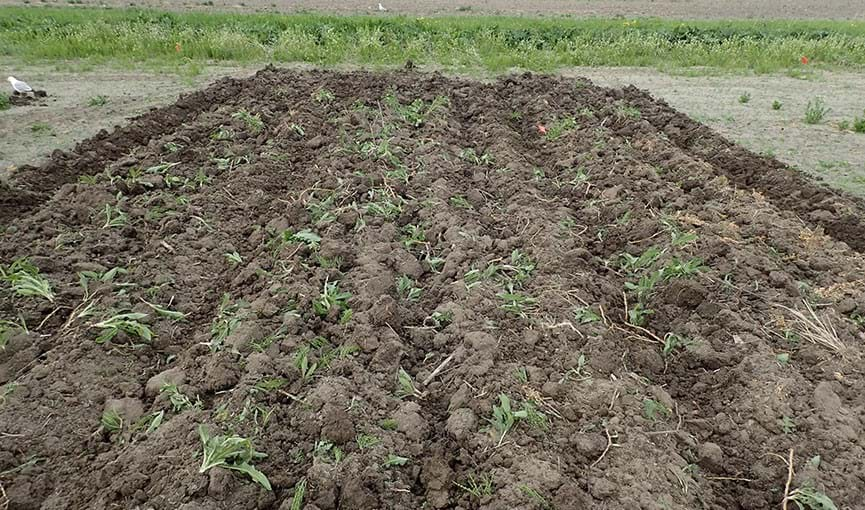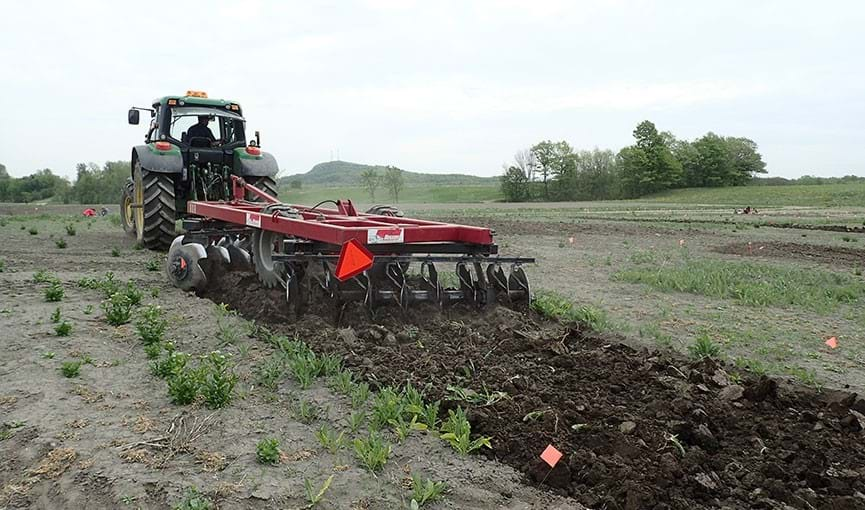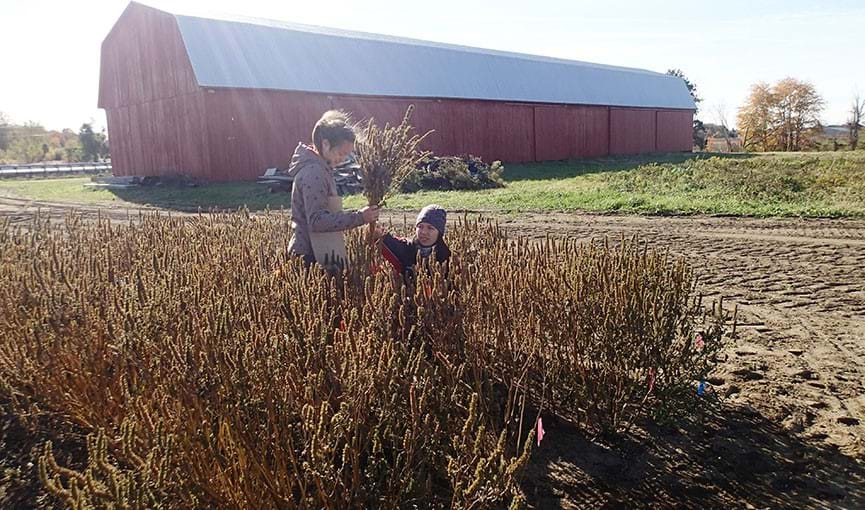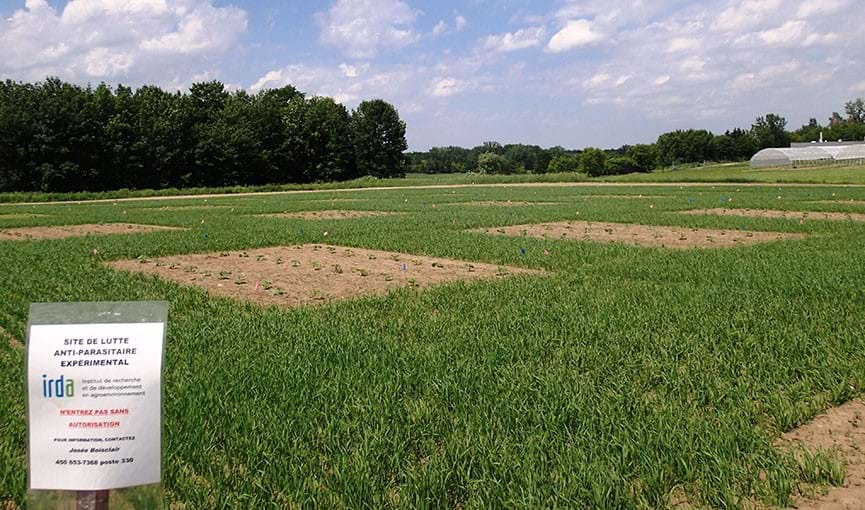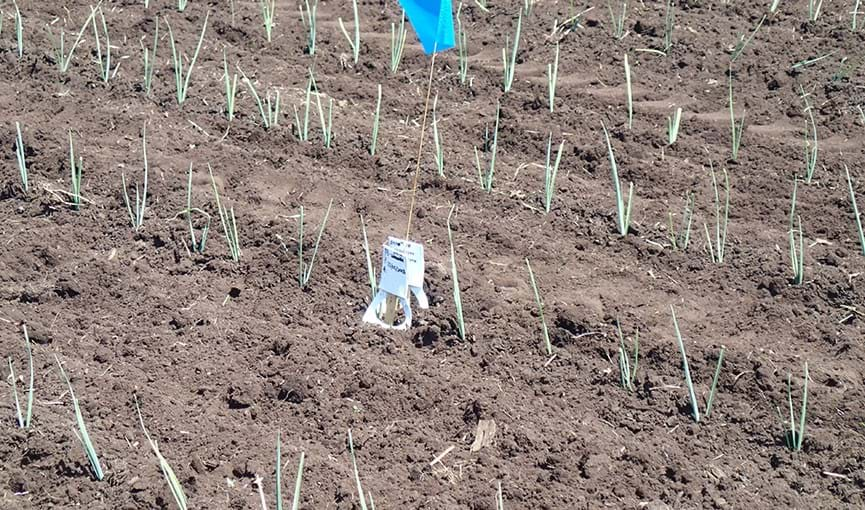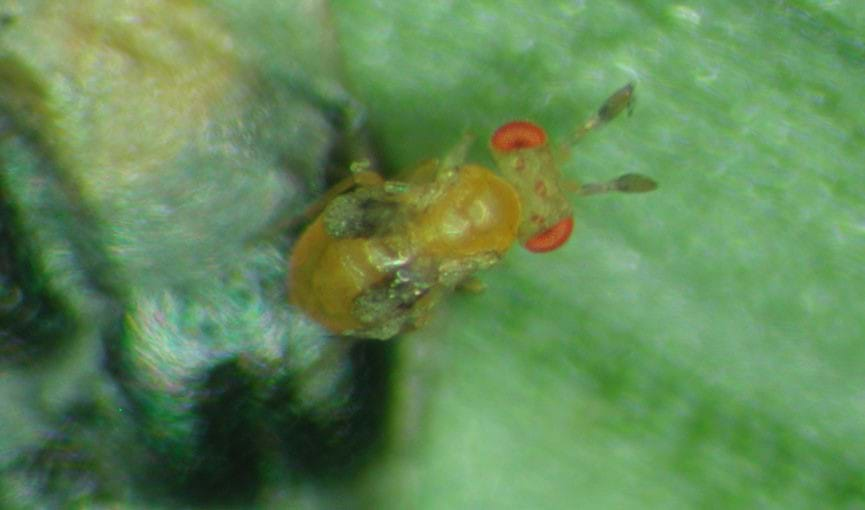Organic farming
Progression BIO: helping to grow the industry and making it easier for farmers to transition from conventional to organic farming
At Saint-Bruno-de-Montarville, IRDA operates the largest organic farming research and development facility in Canada. The IRDA research team at this immense, organic-certified, 90-hectare open-air laboratory, develops and tests innovative crop management systems and addresses challenges specific to organic farming. For example, they evaluate various fertilization scenarios using manure and green manure on long-term plots in order to assess the outcomes of different strategies over the years. Collaborating with farmers to improve soil health is a major focus for the institute, and the R&D team is devising crop production systems that build up nutrient reserves and ensure that ecosystems are less vulnerable to crop diseases. Since organic farms must adopt alternative strategies that do not involve synthetic pesticides, IRDA is evaluating the effectiveness and profitability of various mechanical weeding and pest control practices. Some of these recently developed strategies involve the release of sterile insects, mating disruption, and the introduction of flower strips. At its unique Saint-Bruno-de-Montarville facility, IRDA also works on the development, assessment, and implementation of methods for employing biopesticides, biofertilizers, and biostimulants so that farmers have new and effective eco-friendly tools to help them operate profitably.
IRDA runs the largest organic farming R&D site in Canada.



